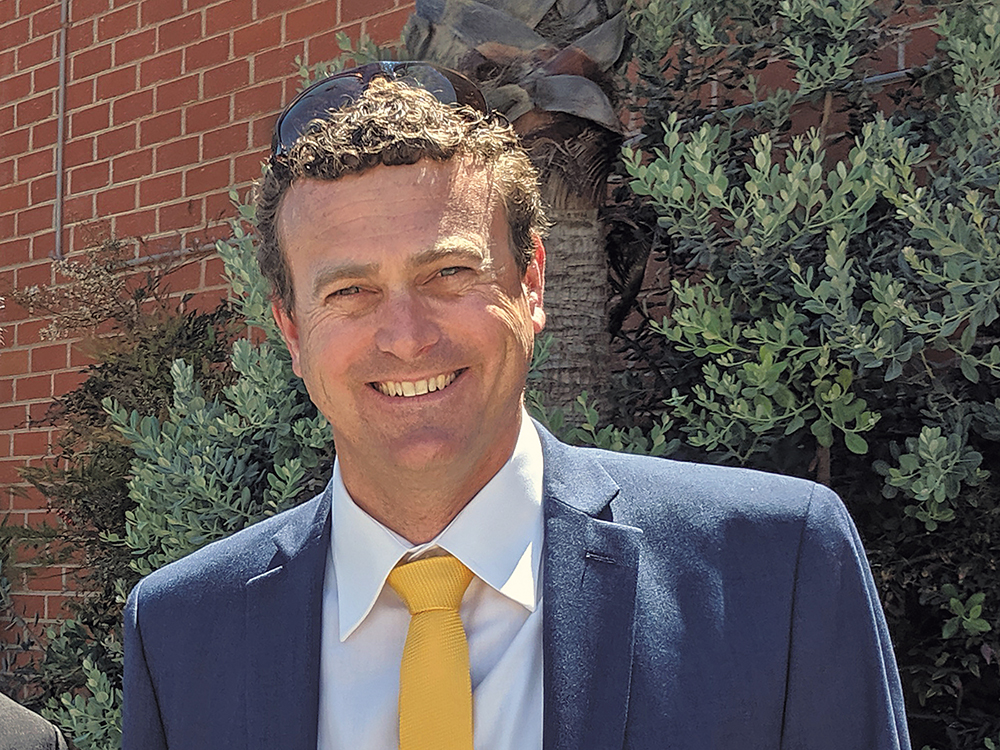by Garth Meyer
Grass roots organizers for a constitutional amendment to prevent the state from interfering with local zoning laws say they will move their target ballot date from 2024 to 2026, after a report from Attorney General Rob Bonta.
On September 18, for the measure’s title and summary, Bonta wrote that it “limits (the) state’s ability to set land-use and housing policy” and “provides that local laws automatically override conflicting state land-use and zoning laws (including those for affordable housing), unless such state laws addressed specific statewide concerns.”
The review is required before organizers start to gather signatures.
Nils Nehrenheim, Redondo Beach city councilman, said Bonta’s statement is “false, misleading, and likely to create prejudice against the initiative.”
He said the measure does not, as Bonta wrote, “provide that local laws automatically override conflicting state land-use and zoning laws, (including those for affordable housing).”
“It does no such thing,” Nehrenheim said. “It gives communities the power to shape local growth in a way that better meets affordable housing requirements – and it restores the ability of local communities to negotiate even higher affordable housing rates, which one-size-fits-all laws passed in Sacramento have taken away.”
“Our Neighborhood Voices,” co-founded by Redondo Beach Mayor Bill Brand, filed a second draft of its proposed initiative in June. Bonta’s subsequent analysis, Nehrenheim said, has pushed back the group’s goal to get on the ballot for two years.
“He is purposely being misleading about the initiative to stop this from moving forward,” said Nehrenheim. “It was highly surprising he would do this. This politicized attack.”
Bonta’s press office, when asked for a response, sent the following statement:
“Under California law, the Attorney General is required to prepare a title and summary for every proposed measure that summarizes its chief purposes and points. In crafting a title and summary, the Attorney General considers a variety of materials, including the complete text of the measure itself and any suggested title, the fiscal analysis prepared by the Department of Finance and Legislative Analyst, and public comments.”
“Our Neighborhood Voices” first aimed for the 2022 ballot, but failed to reach the needed one million signatures by the April 2022 deadline. The group then wrote a revised draft of the initiative for 2024.
Nehrenheim said that the attorney general’s review has distilled the momentum of their quest.
He also contends that the title and summary for the previous draft of the “Our Neighborhood Voices” measure “did not include this misleading language.”
“It correctly stated that the Our Neighborhood Voices initiative would return land-use and zoning decisions back to local communities,” Nehrenheim said. “Instead of forcing top-down mandates on cities that damage neighborhoods and only benefit for-profit developers.”
Bonta’s current summation states:
“For state laws enacted after 2016 to prevail over local laws, they must include specific findings of statewide concern, which may require recent laws to be re-enacted or amended. (The measure) prohibits the state from changing, granting, or denying funding to local governments based on their implementation of this measure.”
Nehrenheim disputes this further.
“This politicized attack against our initiative is just further evidence that Sacramento will continue to put developer profits over the needs of our communities,” he said. “Unless we stand up and fight back.
“While we focus our efforts on seeing that this misleading language is changed, we will continue to grow our grassroots coalition and fight back for our neighborhood voice.” ER










